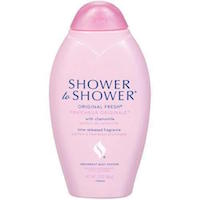
Still, scientific studies do appear to have found a definitive link between talc and ovarian cancer. One even found that a woman could be up to 33 percent more likely to develop the disease if she regularly applies talc to her genitals. Business Insider details how roughly 21,000 women are diagnosed with ovarian cancer each year.
Doctor Roberta Ness, former dean of the University of Texas School of Public Health, states that ovarian cancer as a result of talc use “is 100 percent preventable.”
Currently, talc products are not required to carry any warnings regarding the risk of ovarian cancer. That may be a critical reason why so many women are unaware of the danger they are putting themselves in by regularly using talc products. It is also why Dr. Ness has offered a series of tips to avoid the dangers these products present.
First and foremost, she advises women to read the labels of any and all hygiene products they are considering using. If a product lists talc as an ingredient, she says that women should seek an alternative that uses cornstarch instead. If a woman discovers talc as an ingredient in a product she’s already using, she should stop using it immediately and consult with a gynecologist. Common exams like pap smears don’t account for the possibility of ovarian cancer, so the disease needs to be tested for separately.
Johnson & Johnson has consistently denied any wrongdoing in cases against it over its talc products. The corporation has even gone on record as claiming that “with over 100 years of use, few ingredients have the same demonstrated performance, mildness, and safety profile as cosmetic talc.”
However, the vast majority of the money awarded to plaintiffs in previous talc cases has been in response to an alleged complete failure to act by Johnson & Johnson on the safety of these products. Internal documents suggest that the company has been aware of, and had concerns over, its talc products since the 1970s. That concern, however, has led to almost no effort being made to correct the problem or provide women with a safer alternative.
Warning signs of ovarian cancer may be easy for women to overlook because of how similar they can be to other conditions which are far less serious. These signs include bloating, pelvic pain, and feeling full quickly after just beginning to eat. If you suspect that you or a loved one may be demonstrating these symptoms, consult with your medical professional to discuss your talc usage and determine any other next steps.
